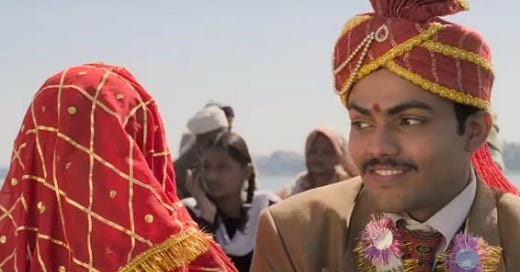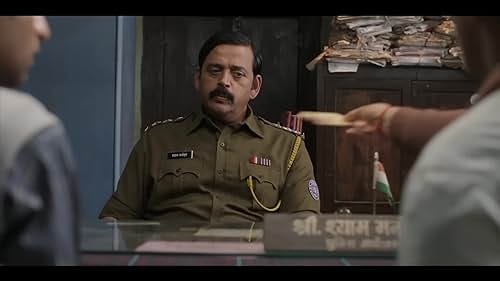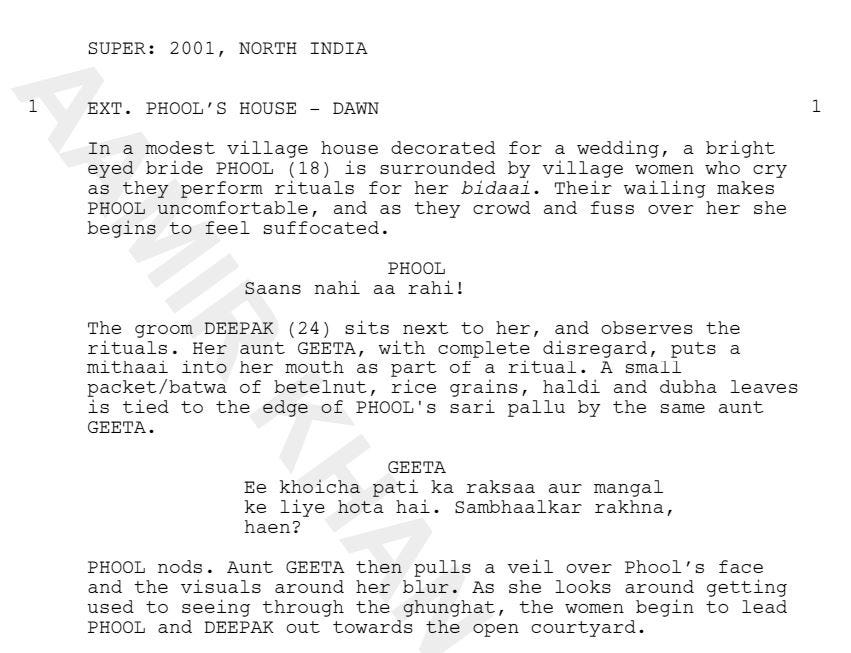I The Movie
I watched Laapata Ladies with my mother, in March, on Women’s Day this year. The theatre was full. After moving to Bombay in 2019, I began watching movies with my mother in the theatre. It has become a weekend activity we both enjoy, but the catch is- since she’s very picky about what she watches, I need to find the right film that both of us can enjoy.
Laapata Ladies kept both of us intrigued from the start, with mystery set in right from the first scenes, and characters so fully formed that they seemed real. The main female leads weren’t just “lost” literally, but also metaphorically.
I’ve been following the film’s reception and it makes me very happy to see that people are appreciating it for what it is. We don’t often get to see village/small-town life portrayed with such sensitivity, and accuracy on the big screen. Yes, creative liberty is taken in several places, but it does a decent job of being close to the truth.
As an urban audience, I found the film revelatory, and relatable at the same time. The story has a way of being specific to the milieu it covers, but its universality is what stays with you.
Without a doubt, the writing elevated the story, and made each character find their own space. Since I enjoy character-driven stories, and write character-driven stories myself, I’m highlighting a few characters from the film which stood out to me.
What I loved the most is, that while Jaya and Phool, the main female leads of the film are the focus, it’s the other characters who are also given enough space to shine through.
My favourite actor
I didn’t like the character of Deepak Kumar as much as I liked the actor portraying him. The way Sparsh Shrivastava emotes Deepak’s feelings of losing his newly wedded wife, Phool, is commendable. It reminded me of the Dutch film, The Vanishing, in which Rex, is deeply disturbed by his girlfriend’s disappearance. In that story, they were dating before she went missing.
In this story, it’s an arranged marriage in a village setting, so you don’t really expect the kind of emotional bond or connection that Deepak displays towards Phool, and Sparsh was the best to portray that. Many scenes made me forget he is playing a role. My favourite scene is a flashback, of when he tries to speak in English to impress his wife, Phool, one of the Laapata Ladies.
My favourite character
I felt this character carried the film on his shoulders. A small-town cop with many layers to his personality. We never see him outside of his office, his presence is endearing, and every word that comes out of his paan-filled mouth matters because the fates of the main leads rest there. Irrespective of the fact that this role was played by Ravi Kishan, a well-known face in Hindi & Bhojpuri cinema, the character’s quirks will stay with you.
My mother’s favourite character
Manju mai from the first glance won my mother’s heart. Her tough motherly love towards Phool, her presence as an independent woman and a guiding light left a deep impression on my mother.
Most of the actors in this movie aren’t big Bollywood stars, and that was refreshing. The Better India, recently posted a reel with information about the actor Chhaya Kadam who played Manju Mai. You can watch it here.
II The Screenplay
I had set out a goal this year, to read and observe as many screenplays as I can. I recently came across The Screenwriting Club co-founded by Siddhant Makkar and Prakruti Maniar, and had been meaning to attend one of its screenplay discussions. I finally managed to go this time. It was wonderful to discuss the screenplay with others who loved the story as much as I did, on a Saturday morning.
Here are some directions the discussion of Laapata Ladies took:
The authenticity of the dialogues- were some of them preachy? And over-the-top feminist? Or were they authentic?
The nuances of setting a story in a fictional place-Nirmal Pradesh. Did it justify the made-up dialect?
The female character arcs- were they silent spectators who let things happen to them, or did they change, and change realistically?
Were any scenes that are in the screenplay, and not in the film, important? (It’s interesting to note that the screenplay has elements that you won’t find in the final film.)
It’s not common to have access to screenplays of recently released popular films. Luckily, The Film Companion has released the screenplay for the public.
Here’s a snippet from the beginning-
You can download the full screenplay for free here.
The reading of the screenplay, and the discussion reminded me of how collaborative screenwriting is. Unlike a book authored by one person, a screenplay has to keep in mind many people involved.
If you end up watching the film or reading the screenplay, or doing both, let me know your thoughts! I’d love to hear from you!
Stay happy, healthy, and creative!







